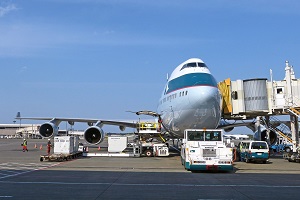
Pollution Insurance for Fixed Based Operators
By Michael Tighe, Executive Vice President & Northeast Regional Manager
Off the shelf Pollution policies may cover only a portion of your client’s exposures. Frequently there is a need to remove or modify standard Pollution policy wording in order to provide effective coverage. It may also be necessary to include more than one Pollution coverage part in order to round out an account. A fixed-based operator (FBO) is a good example of this issue. FBOs are typically independent airport contractors providing aeronautical support services such as: airplane fueling/defueling, aircraft maintenance, taxing, de-icing, tie-down, and parking/storage operations. There are an estimated 3,000 FBOs operating in the United States and are usually located on airport property.
There are several exposures an FBO should be aware of when considering coverage:
Contracting
Operations are out on the runway/airport property as well as servicing at their leased hangar. A Contractors Pollution Liability (CPL) policy typically provides protection against third party bodily injury/property damage claims, associated clean up, and defense cost coverage. It seeks to address the pollution exclusion found in most General Liability policies, essentially jobsite coverage and not for premises that the insured owns or rents. CPL also excludes autos but may cover other motor vehicles that do not fit the definition of an auto. This coverage is most effective for de-icing and runway servicing of aircraft.
Transportation Pollution Liability (TPL)
TPL is another coverage part to consider for this line of business. If the operator’s Auto policy does not include the broadened pollution endorsement, there may be a gap in coverage. This coverage part provides cargo coverage for the fueling/defueling operations should the vehicle upset and overturn or leak. It can also be modified to include loading/unloading/dispensing issues.
Yard/Hangar/Tanks
Premises Pollution Liability (also known as Site Specific Pollution, EIL, and PLL) is designed to cover claims arising from pollution releases at, on, or emanating from a scheduled location. A “location” can be as broad as an entire piece of property or as narrow as a specified storage tank. Policies are almost always Claims Made and the pollution event and claim reporting must occur on or after the retroactive date. Coverage is triggered either by a claim for damages from a third party, or by the discovery of contamination above “action levels” on the insured’s premises. This coverage part would address issues that affect their leased premises as well as any aboveground storage tanks. Known underground fuel tanks may also be considered for coverage but would need to be scheduled to the policy. The coverage trigger is different from contracting policies because the incident doesn’t have to occur from the insured’s work or occur on/after the retroactive date. Additionally, over time, seepage of liquid chemicals, lubricants, solvents, and waste oil can find its way below surface and affect the soil and groundwater. Addressing this exposure with Premises Pollution coverage will protect your client’s longer term gradual exposure to environmental litigation issues.
While there are over 40 insurance companies offering some form of Pollution coverage, there are only a few that can properly address the unique exposures of this class of business. It is important to read the primary specimen part and each endorsement to see if it addresses the specific needs of your client. By working with an experienced environmental wholesale broker like Beacon Hill Associates, agents can gain better access to environmental markets and receive the guidance and tools to help sell the coverage. Contact Beacon Hill for more information or to discuss a specific account.
Type: Blog
Topic: Airport, Fixed Base Operator